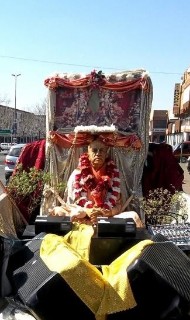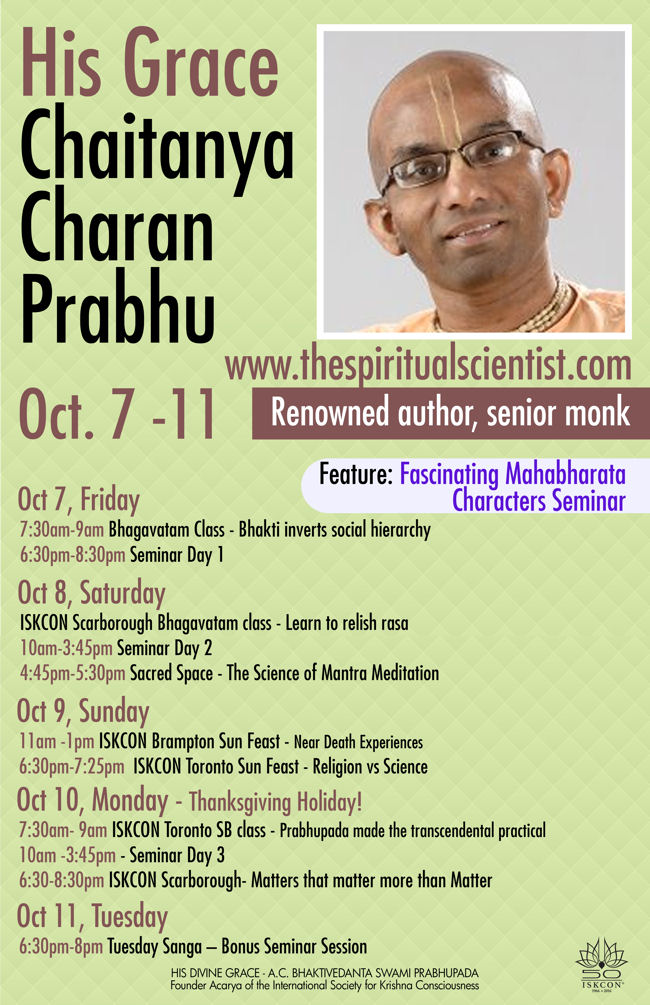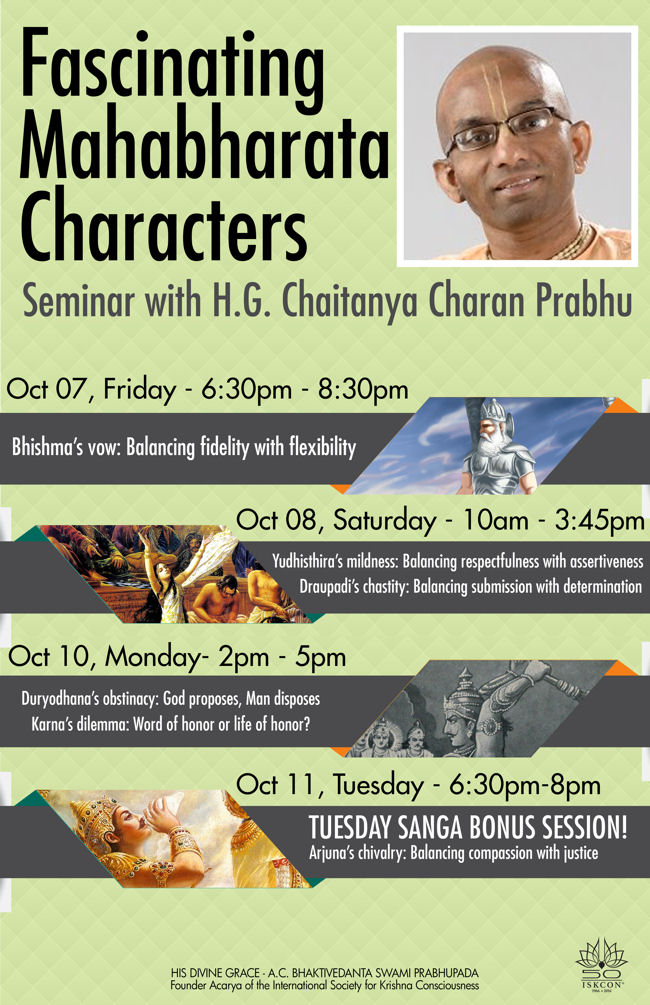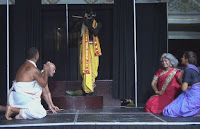Q: You mentioned in your video, diksha refers to getting the mantra and shiksa refers to getting instructions on how to chant it…
Dīkṣā means acceptance into the educational process (aka “sādhana”) of a given school. This acceptance is accomplished by giving the student the school’s study materials (mantra and śāstra)
Q: We already got the mantra from some devotee, we may not even remember whom. Would a formal initiation ceremony benefit us?
Hearing a mantra from someone on the sidewalk is a haphazard dīkṣā at best. Real dīkṣā should be intentional. The person giving it should be recognized by the school as worthy of evaluating whether a candidate is worthy of being inducted into the school. And the induction should be done deliberately. Giving of the mantras (etc) are the process to accomplish this induction. Just hearing a mantra doesn’t mean I am inducted into the school that uses the mantra, but induction into a school will involve being given their mantra. So “a includes b, but b does not always include a.” (where “a” is the acceptance into a spiritual school, and “b” is the bestowal of their mantras, etc)
Q: Siksha guru plays more significant role than diksha guru.
Sometimes yes. Sometimes no. Generally its best if the dīkṣā guru is also the primary śīkṣā guru.
Q: In the current scenario, the siksha gurus who guide us daily are mostly not authorized by the ISKCON institution to give diksha. In this case, should one aspire to receive dīkṣā initiation from the diksha guru of one’s siksha guru, based on the assumption that since his siksha guru is so great, the diksha guru must be great as well – because a deer cannot give birth to a lion?
If you feel that a person represents a school very authentically and deeply, but there is some branch of that school that does not agree and therefore does not authorize that person to accept inductees on their behalf, then you should figure out of either your opinion of the merit of that person is wrong, or your opinion of the value of that branch of the school is wrong. One or the other is wrong. If you decide that the branch is wrong, then leave the branch. If you decide the person is wrong, leave the person.
Q: The diksha gurus authorized by ISKCON are often too busy having thousands of disciples, and may not have time to talk to his disciples directly. Most of the instruction comes through others, the councillors or siksha gurus. In such a situation, how will the formalities of initiation help a practicing devotee?
If the dīkṣā guru is authorized by an empowered branch of the school to accept you as a member of the school, then you are accepted. And the dīkṣā guru would then assign you to an appropriate śīkṣā guru, and would not interfere with the instruction you receive there, knowing his practical limitations. If he does not put you in the care of a śikṣā guru or does not allow that śīkṣā guru to perform his or her role, then the dīkṣā guru was accepted mistakenly, for they are not sincere and do not desire to benefit the disciple. They should be renounced if they persist in this behavior.
Q: Can one person have more than one guru?
An individual should accepted into one school, or at least one at a time. It generally difficult to attend two schools simultaneously. Therefore there should be need for only one successful dīkṣā per school – so, basically there should only be one dīkṣā guru. But everyone in the universe and everything should become our śikṣā guru. We should have multiple śīkṣā gurus, but there should be order and priority. The dīkṣā guru would ideally be the main śīkṣā guru. Others further along in our own school are other high-priority śīkṣā gurus. Others from other schools, or just random people and animals are also śīkṣā gurus, but their teachings are understood in context of the teachings of the higher-priority śikṣā gurus.
Śrī Krishna Dās Kavirāja therefore says, “vande ‘haṁ śrī guroḥ, śrī guruṁ vaiṣṇavamś ca” which means “Obeisance to my guru (singular, dīkṣā guru), and also to my gurus (plural, śikṣā gurus), the Vaiṣṇavas (the highest-priority śikṣā gurus).
Tagged:
diksha guru,
Guru,
siksa guru 




















 By Padmanabha Dasa
By Padmanabha Dasa By Murali Vadhana Govinda Dasa
By Murali Vadhana Govinda Dasa

 By Madhava Smullen
By Madhava Smullen










